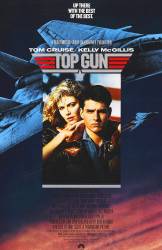
Question: This is probably a stupid question, but I know nothing at all about how these kind of aircrafts are flown. What exactly is the purpose of the guy sitting in the back of the plane? All they seem to do in the film is look in all directions for enemy aircrafts.
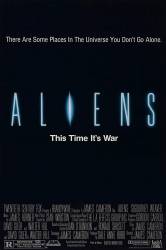
Question: I know that the studio chose James Cameron to direct due to the strength of his script, but why wasn't Ridley Scott offered the chance to direct? And was the studio considering a sequel before Cameron joined?
Answer: It really was all down to James Cameron having already written the script and proving himself capable of directing with 'The Terminator.' It was just a quicker, easier, and almost certainly cheaper decision to let him direct his own script rather than get someone else, even Ridley Scott. While the producers had wanted to make an 'Alien' sequel almost immediately, at the time the head of 20th Century Fox didn't want to pursue it fearing it would be seen as an obvious cash-in and flop. When a new executive at the studio came in a couple years later, the project was put back on track, and I believe Cameron was the first to be approached to write the script.
Chosen answer: The studio was considering a sequel before Cameron was involved, but regarding directing it, Ridley Scott told "The Hollywood" in a 2008 interview, "They didn't ask me! To this day I have no idea why. It hurt my feelings, really, because I thought we did quite a good job on the first one." The studio liked Cameron's script and at that time he had enough clout to be able to insist on directing it.
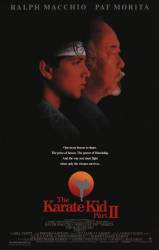
Question: When Chozen, while bullying Daniel, takes the latter's handheld drum (which Chozen mockingly called a "baby rattle") and calls the latter a baby, Kumiko, sticking up for Daniel, fiercely says a phrase in Japanese (or Ryukyuan) to Chozen. What exactly does Kumiko say, and what does it mean? (00:57:50)
Answer: "You are crazy."
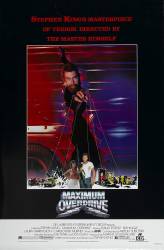
Question: One of the early posters of this film shows a bearded guy (who is not in the film) coming through a wall crack and holding puppet strings with one hand. Who is this guy supposed to be and what does he represent?
Chosen answer: He does bear a striking resemblance to Stephen King. King was both the writer and director of this movie, and as such, was certainly the guy in charge of all the character's fates and pulling all the strings.
Answer: It is Stephen King.
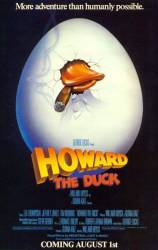
Question: Why is the secretary was so rude to Howard when he tried to find the job?
Answer: As she said to Howard, she believed that he was using his "outlandish" appearance to be unable to find work and collect money through unemployment. She's probably dealt with people who did the same thing and was eventually sick of it.
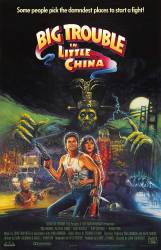
Question: When Lightning is crushed by the statue at the end of the movie, he sends out dozens of bolts of energy before he dies. The final wisp of electricity forms a Chinese character. Does anyone know what it means?
Answer: It's the symbol for "carpenter" after the director John Carpenter.
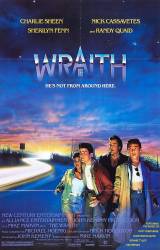
Question: What are those devices we see disappear from the wraith's arm and after the second and third race supposed to be?
Chosen answer: I believe they are markers to show how many people are left to take revenge on for his death.
The problem with that answer is that the Wraith had to kill five people (Oggie, Minty, Skank, Gutterboy and Packard) and he only had four of those metal braces. If he had one for each gang member he wanted revenge on, he would have had five. I think he was only given four chances to crash his car and reassemble, and once they were gone, that was it. That's why he killed Skank and Gutterboy at the same time.
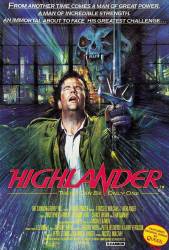
Question: How is the "no fighting on holy ground" rule enforced? I really can't see a guy like the Kurgan, who seems to have no sense of honor to speak of, following the rule willfully, unless there was some severe punishment for breaking the rule.
Answer: What the punishment is isn't shown in this movie, but since even the Kurgan follows it, it must be high. In Highlander 3 we see that fighting on holy ground at least destroys the weapons they are fighting with (although only Macleod's for some reason), it's possible the ultimate penalty is given when an immortal kills another immortal on holy ground. A good guess is the penalty is death.
Answer: The "No Fighting on Holy Ground" is considered a sacred rule. Like being quiet in church, a funeral or any religious service. If any immortal would break this rule he was not be honorable and not subject to any of the other rules. Like fighting one on one and using hired thugs to capture an immortal holding him down to take his head.
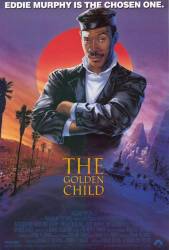
Question: Does anybody know why Sardo Numspa can't pronounce J's? Such as when he pronounces Chandler Jarell as Yarell. I've looked but can't seem to find any explanation.
Answer: A lot of non english speaking countries have trouble pronouncing the letter J as it does not appear in their alphabet. It is a fairly recent addition to the english language too. Previously words that now start with a J would have began with an "I" sound as in "Iarell".
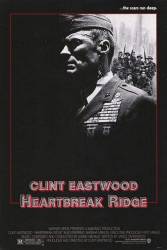
Question: Why was the platoon making such a big deal about wearing shirts during their exercises? I would think they would be better off wearing shirts so they would not get a sunburn. So what was the big deal?
Chosen answer: Gunny Highway insisted that they all wear the same shirts as he himself was wearing. If they showed up in a different one, he made them go shirtless. The reasons for this were 1) to break through their rebellious attitudes and teach them to follow his orders, 2) to make them look and feel unified, and 3) to develop resourcefulness and adaptability in them.
To also display esprit de corp to other units gaining them respect from those units as well as command leadership.
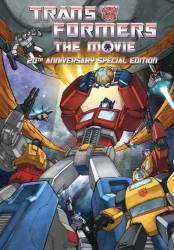
Question: Soundwave has two non-animal cassette robots, Rumble and Frenzy, but I'm getting confused on who is who, because in the guide to Transformers, the red and black one is said to be Rumble, but in the episode 'Desertion of the Dinobots part 1', Megatron calls the purple one Rumble, (and if you are wondering, I only have the season two part one DVD, so I don't know much about the T.V series), Can someone please tell me which is which?
Answer: The guide to Transformers (which I believe is known as Transformers: The Ultimate Guide) is based on the comics in terms of character profiles for the most part. In the Transformer comics, Rumble was red and black and had Piledriver arms, whilst Frenzy was purple and could use sonic screams. However, in the cartoon the character colours were reversed for no known reason (so Rumble is now purple and Frenzy is red and black) and both used pile driver arms.
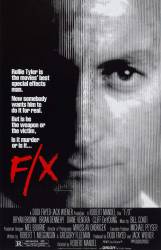
Question: Lipton the Justice Department official tells Rollie Tyler, "I really admired your stuff, ever since 'Vermin from Venus.'" Rollie's female assistant responds, "That's the one that got him deported from Australia." My question is how could Rollie have been deported from Australia, when he was born, raised and lived his whole life there? Where would he have been deported to?
Answer: It was most likely a joke, the movie was so horrible it gave Rollie a bad reputation and probably got him blacklisted.
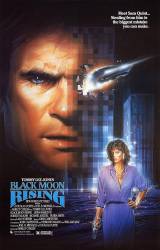
Question: Was Keenan Wynn actually ill when he made this film, or was that just good acting?
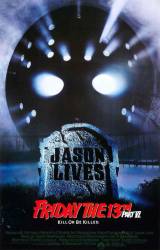
Question: Normally, whenever Jason gets shot, struck with a machete or an axe, or stabbed with a knife, he shrugs it off. So why was he angry when Roy shot him with a paint gun?
Chosen answer: He wasn't really angry, more like confused and annoyed at having paint shot at him.
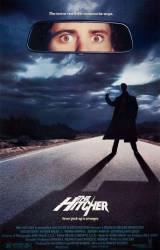
Question: In the shot where John Ryder is in the van and uses a metal like object to unlock the handcuffs. When Jim Halsey was to be talking to John in prison, they are holding hands. I was wondering if Jim could've put the metal object into John's hands, so that John could escape and Jim could kill him himself? As like a kind of getting back at thing for all that he had to go through.
Answer: What you see him playing with is a link on the chains around his waist - note chains, not handcuffs. We know he's a resourceful guy, and just before he escapes, we see the two guards playing cards, with the shotgun loosely on one's lap - based on what we know about the configuration of the truck, John would have easily been able to leap forward and grab the shotgun while we see Jim driving up to the truck. John then shoots the guards with the shotgun we now know he just grabbed.
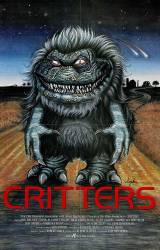
Answer: These aircraft are extremely complex; the presence of the backseater, variously known officially as the Weapon Systems Operator or Radar Intercept Officer, allows the pilot to focus on the immediate needs of flying the plane, as his backseater can take on many of the other tasks required. They serve as navigators, tacticians, bombardiers, weapons systems operators and, of course, as we see in the film, an extra set of eyes; they use their discretion in passing information to the pilot, ensuring that the pilot has only data that's important to the situation and isn't swamped by trivia. Without the distraction of having to fly the plane, they can often be better placed to coordinate between multiple planes, leading to situations where the backseater can be placed in command of the mission.
Tailkinker ★